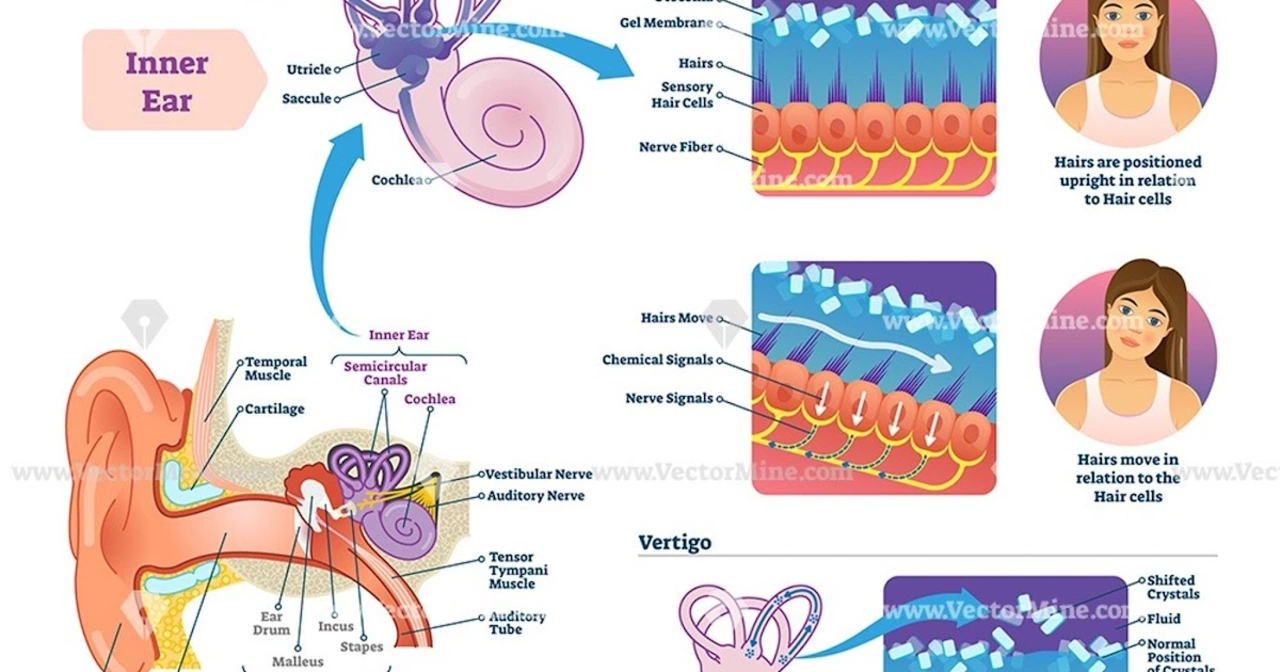The inner ear does more than just help you hear. It balances your body, controls pressure, and keeps you steady when you walk. When it goes off‑track, you might feel dizzy, hear ringing, or notice muffled sounds. These signs can be scary, but they’re often fixable with the right steps.
First, let’s break down the main players. The cochlea is the snail‑shaped part that turns sound waves into signals for your brain. Next to it sits the vestibular system – three tiny canals filled with fluid that tell you which way is up. If either of these parts gets inflamed or damaged, you’ll notice symptoms fast.
Tinnitus is the classic ringing or buzzing that never stops. It can start after loud concerts or as a side effect of certain meds. Vertigo feels like the room is spinning, even when you’re standing still – often caused by fluid shifts in the semicircular canals. Hearing loss from inner ear damage usually starts with muffled speech and can get worse over months.
Other red flags include sudden pressure changes, ear fullness, or balance issues that make walking tricky. If you’ve had a recent infection, a cold, or been underwater for a long time, these symptoms are more likely to show up.
The good news is many inner ear troubles improve with simple home tricks. For mild tinnitus, turning down caffeine and keeping background noise low can help your brain ignore the ringing. When vertigo hits, try the Epley maneuver – a series of head positions that move fluid back into place.
If you suspect an infection, over‑the‑counter antihistamines or nasal sprays may reduce swelling in the ear’s tube. Staying hydrated and avoiding sudden temperature changes also supports fluid balance. For persistent hearing loss, ask your doctor about hearing tests; a hearing aid or cochlear implant might be recommended.
Always talk to a healthcare professional if symptoms last more than a few days, get worse, or come with severe pain. They can rule out serious conditions like Meniere’s disease or acoustic neuroma and prescribe meds such as steroids or diuretics when needed.
In short, listening to your inner ear signals and acting early makes a big difference. Whether it’s a quick DIY maneuver or a visit to the clinic, you have tools to get back to feeling normal. Keep an eye on changes, stay hydrated, and don’t ignore ringing – your ears will thank you.

I recently delved into the science behind vertigo, and it's fascinating how our balance system works! Our inner ear plays a crucial role in maintaining balance as it contains sensors for both linear and rotational movements. These sensors, along with our eyes and muscles, send signals to our brain, which then helps us maintain a sense of balance. However, when there's a disruption in any part of this complex system, we can experience vertigo, which can be quite an unsettling sensation. It's amazing how our body works together so seamlessly to keep us upright and steady!
View more